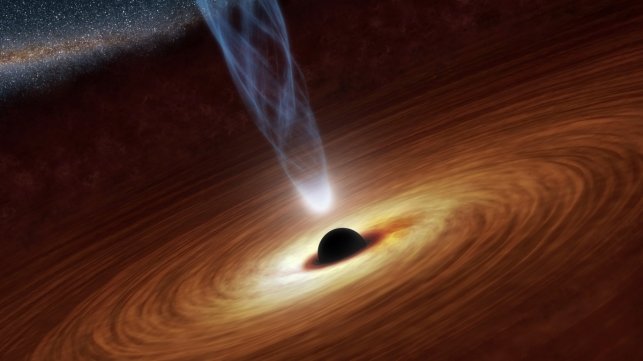
Though scientists have confirmed that it's lack of fuel that is keeping the supermassive black hole at the centre of galaxy Markarian 1018 starving and in turn has made the galaxy go dim, they are still unclear about why it remains unfed?
Experts, at the National Aeronautics and Space Administration, believe that there might be another black hole in Markarian 1018 which is sucking up materials before they could reach the first black hole, however, it still remains a mystery as none is able to come with a concrete answer. Space.com explains that Markarian 1018 galaxy is actually two separate galaxies that collided and so the hypothesis that there are two black holes at the centre is very much possible.
Black holes are dead or dying stars that turn into a supernova where the pulling force of gravity is so strong that it sucks up everything, including light. Moreover, supermassive black holes radiate light when materials enter them and get is accelerated.
Recently scientists have solved the decades-old galactic mystery behind the flickering nature of the active galaxy Markarian 1018 that changed from being faint to really bright and back to being dim in a short span of time. It was reported that it went from faint to bright in the 1980s and then again became dim from 2010 to 2016.
Also read: UFO sighting in Turkey: Hoax or spine chilling truth?
Scientists ruled out another theory that explained the flickering nature of the galaxy asserting that the active galactic nucleus (AGN) is lacking fuel to glow brightly. Some experts argued that the nucleus is simply surrounded by gas and dust and dust seems to flicker. However, Data from the Chandra and Hubble telescopes dismissed this theory.









